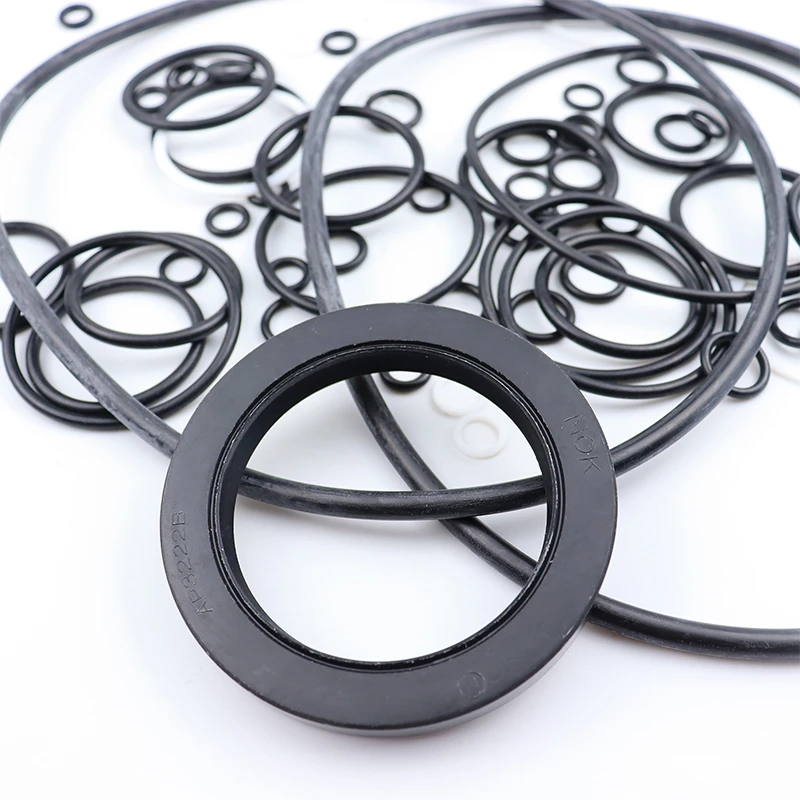Αυγ . 05, 2024 02:31 Back to list
High-Quality Hub Rubber Seal Solutions for Enhanced Durability and Performance in Automotive Applications
Understanding Hub Rubber Seals Essential Components for Machinery
Hub rubber seals play a critical role in the operation and longevity of various mechanical systems. These seals are specifically designed to prevent the ingress of dirt, moisture, and other contaminants into a hub or bearing assembly. This article will delve into the importance, types, materials, and applications of hub rubber seals, highlighting their role in maintaining the functionality and reliability of machinery.
Importance of Hub Rubber Seals
In any mechanical assembly where rotational movement occurs—such as wheels, motors, and turbos—hub rubber seals serve as a barrier to protect internal components. These seals help maintain optimal performance by keeping lubricant in and preventing harmful substances from entering. Without effective sealing, bearings and hubs can suffer from premature wear, leading to increased maintenance costs and potential mechanical failure. By ensuring a tight seal, hub rubber seals enhance the durability and reliability of critical machinery.
Types of Hub Rubber Seals
There are various types of rubber seals designed for different applications. The most common types include
1. Lip Seals These seals feature a flexible lip that conforms to the shaft or housing surface, providing a dynamic sealing effect. They're often used in rotating applications where effective sealing is crucial.
2. O-Rings While primarily used for static sealing, O-rings can also be used in some hub applications where they prevent leaks in a multi-piece assembly.
3. Gasket Seals These are flat seals designed to fill the space between two surfaces, typically where a high resistance to pressure and temperature is needed.
4. V-Seals These seals are designed to fit over rotating shafts and provide an axial sealing solution. Their unique shape allows them to retain lubrication while keeping contaminants out.
Materials Used in Hub Rubber Seals
The materials used to fabricate hub rubber seals significantly influence their performance and durability
. Common materials include- Nitrile Rubber (NBR) This is widely used due to its excellent resistance to oil and fuel, making it suitable for automotive applications.
hub rubber seal

- Fluoroelastomer (FKM) Known for its high-temperature resistance and chemical stability, FKM is often used in demanding environments.
- Silicone Rubber This material is great for extreme temperatures and resists environmental factors like UV light and ozone.
- Polyurethane This is often used for its abrasion resistance and is ideal for applications requiring flexibility.
Each material is chosen based on the specific requirements of the application, such as temperature, chemical exposure, and movement conditions.
Applications of Hub Rubber Seals
Hub rubber seals find applications in various industries, including
- Automotive They are integral to vehicle hubs, wheels, and transmissions, ensuring smooth operation and longevity.
- Aerospace In aircraft, hub seals protect sensitive components from high altitude and pressure changes.
- Industrial Machinery Equipment such as conveyor systems, pumps, and motors utilize rubber seals to maintain efficiency and reduce downtime.
- Household Appliances Many appliances rely on rubber seals to keep contaminants out and enhance performance.
Conclusion
Hub rubber seals are indispensable components in a myriad of mechanical applications. By preventing the ingress of contaminants and ensuring the retention of lubricants, these seals significantly contribute to the performance and life expectancy of machinery. Understanding the types, materials, and applications of hub rubber seals enables engineers and manufacturers to make informed decisions, thereby optimizing the design and maintenance of their systems. As technology advances, the design and materials for hub seals will continue to evolve, promising even more enhanced performance and reliability for future applications.
-
The Trans-formative Journey of Wheel Hub Oil Seals
NewsJun.06,2025
-
Graphene-Enhanced Oil Seals: Revolutionizing High-Pressure Oil Sealing
NewsJun.06,2025
-
Future of Hydraulic Sealing: Advanced Intelligent TCN Oil Seals
NewsJun.06,2025
-
Don’t Let a Broken TCV Oil Seal Ruin Your Day
NewsJun.06,2025
-
Bio-Inspired Dust Seals for Better Sealing Performance
NewsJun.06,2025
-
Biodegradable and Sustainable Hydraulic Seal Materials
NewsJun.06,2025
-
Top Oil Seal Solutions for Your Industrial Needs
NewsMay.22,2025
Products categories
















